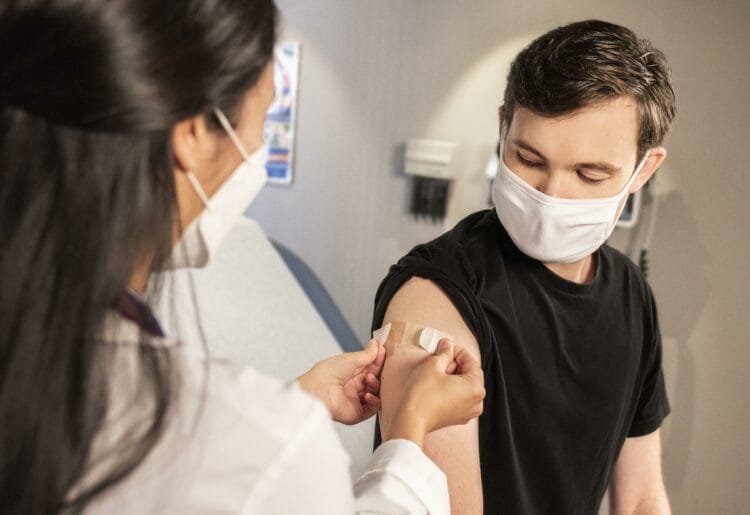A CHARITY that tackles meningitis is urging young adults to take a potentially lifesaving vaccine.
Meningitis Now says the latest Government figures on the uptake of the routine school-based MenACWY teenage vaccination show an increase from 58.3% of those eligible to receive it in 2019-20 to 76.5% last year.
But it wants to see the figure return to the pre-covid level of 88%, with concerns that under 25s are putting themselves at risk.
One of the areas that has the highest take up is West Berkshire, where 98.2% of people have had the vaccine.
Meningitis Now chief executive Dr Tom Nutt said: “It’s good to see these figures moving in the right direction and more of our young people getting protected against MenACWY through the programme.
““I would urge everybody to take advantage of the MenACWY vaccination when it is offered – as we know vaccination is the best way to protect yourself against the devastation that meningitis can bring.
“Of course, school attendance rates were lower than normal last year due to the pandemic, which will have had an impact on these figures.
“As we hopefully start to emerge from this pandemic I’m hopeful we can see further improvement in these rates and in the protection of our young people.”
Dr Nutt said that research shows that up to a quarter of 15- to 24-year-olds carry the bacteria that cause meningococcal meningitis and septicaemia in the back of their throats compared to one in 10 of the general population.
The early signs and symptoms of meningitis and septicaemia can be similar to ‘flu, tummy bug or a hangover and include fever, headache, nausea, vomiting, diarrhoea, muscle pain, stomach cramps and fever with cold hands and feet.
More specific signs and symptoms include fever with cold hands and feet, drowsiness, confusion, pale blotchy skin, stiff neck, dislike of bright lights and a rash which doesn’t fade under pressure.
If meningitis is suspected, people are urged to seek urgent medical attention.
Meningitis Now has free information for parents and young people and lifesaving Signs and Symptoms cards. Find out more at www.MeningitisNow.org
























